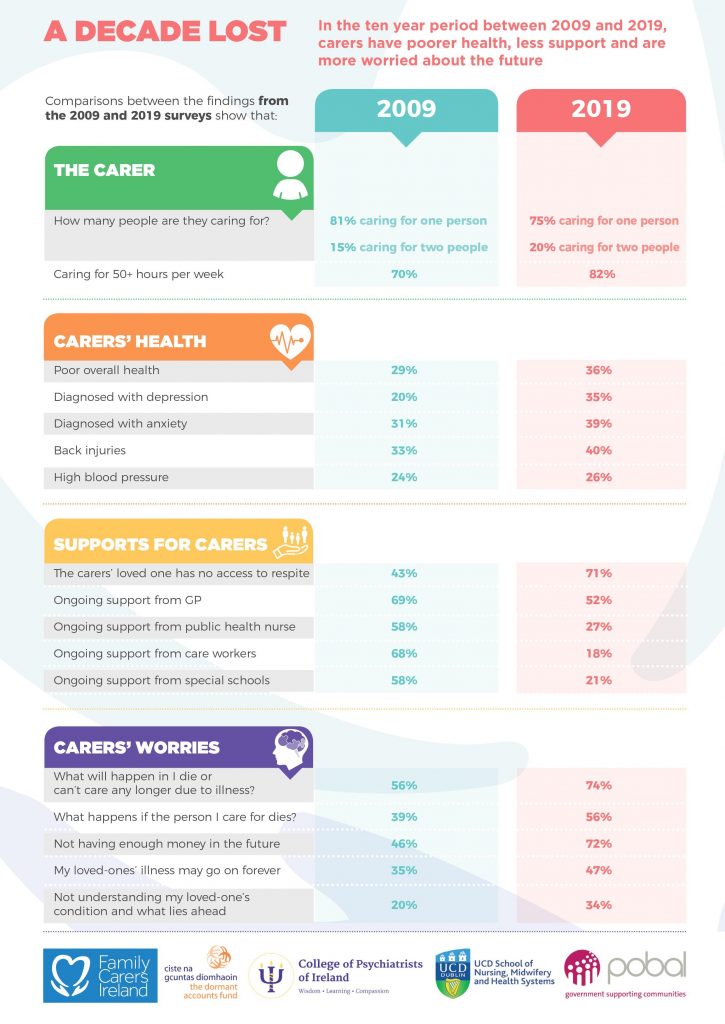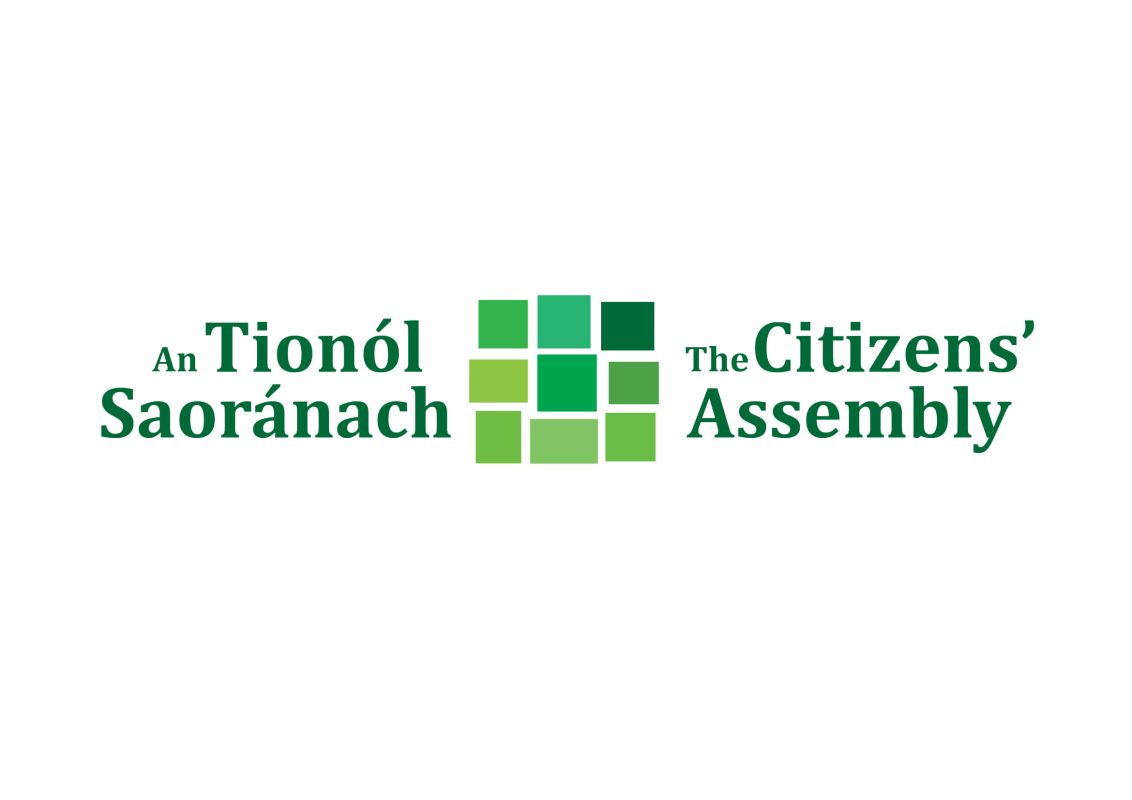1 in 3 Family Carers have a diagnosis of depression and almost 2 in 3 carers are now providing more than 100 hours of care per week, estimated to be saving the state €10 billion every year. These are just some of the alarming findings in new research report titled ‘Paying the Price: The Physical, Mental and Psychological Impact of Caring’, carried out and launched today by Family Carers Ireland in collaboration with the College of Psychiatrists of Ireland and UCD School of Nursing, Midwifery and Health Systems.
The report, which is a repeat of a similar study completed in 2009, surveyed 1,102 family carers across Ireland and reveals a severe dis-improvement in the well-being of Family Carers over the past decade along with a huge increase in the burden of caring. The findings published today are part of the first in a series of follow-up research reports providing an insight into the impact that caring has on Family Carers’ physical, mental and psychological health.
Paying the Price: The Physical, Mental and Psychological Impact of Caring findings include:
- Almost 2 in 3 carers are providing more than 100 hours of care per week
- 1 in 4 carers providing 50+ hours of care per week do not get Carers Allowance or Carers Benefit
- In 2019, 1 in 3 carers surveyed have a diagnosis of depression.
- In 2019, 4 in 10 carers surveyed have a diagnosis of anxiety.
- Over two thirds of carers surveyed suffer with physical ill health in 2019 and 2 in 3 carers feel that their health had suffered as a result of caring.
- Access to routine supports have reduced since 2009, despite more carers providing round the clock care in 2019.
- 71% of carers’ loved ones have no access to respite.
- 72% of family carers surveyed worry about not having enough money in the future.
Catherine Cox, Head of Communications and Carer Support at Family Cares Ireland said, “All of the results show carers mental and physical health has deteriorated since the 2009 study. A decade has been lost for family carers. Due to a lack of support, carers have poorer health and are more worried about their futures. One vital support for family carers is respite, both regular and emergency, and Family Carers Ireland have been fighting for this support for many years. Even a small period of respite recharges batteries for people who work 24/7. Despite this fact access to respite has significantly deteriorated – in 2019 71% of cared for persons have no access to respite compared with 43% in 2009.”
Linda Comerford, a Family Carer from Kilkenny spoke about her experience with carer burnout at the launch, she said, “I care for my four children who all have extra needs. Sometimes I don’t think I can cope with everything as I can’t spread myself any thinner. We never get a day off. Being a carer is a constant battle, especially with trying to keep home care support hours.”
Dr John Hillery, President of the College of Psychiatrists of Ireland said:
I am saddened to see that despite the increased emphasis on mental health in the public domain in the last decade the experience of carers has deteriorated. The impact of the caring role on health, especially mental health has increased. It is obvious that the supports available are not having a positive impact on carer’s lives. Hopefully this survey will prompt those with the power to bring change to look behind the figures and introduce measures that will bring practical recognition to individual carer’s in a way that truly lessens the negative effects of the carer’s role.
Dr Deirdre O’ Donnell, Assistant Professor of Health Systems, UCD, said, “Our healthcare system is severely dependent upon the continuing supply of family carers. This dependence is likely to increase dramatically into the future as demand for care at home will continue to rise. This important study clearly demonstrates that chronic lack of support in terms of access to home care, respite, as well as adequate income supports has negatively affected carer’s health, psychological and social well-being as well as their financial status. It is vital that the cost of caring to a carer’s health and well-being is both acknowledged and urgently addressed in order to secure the future of long-term care provision in our homes and communities.”
This report also sets out recommendations and shows that Family Carers and their families often carry the burden of care alone when this should be a shared responsibility between the State and families.
Some key recommendations to support the health and well-being of carers include:
- End the postcode lottery in carer supports by providing access to respite, training, information and one-to-one emotional support in the community
- Enshrine in the Statutory Homecare Scheme the right to 20 days respite each year
- Ensure adequate incomes for caring households
- Provide access to a Carer Needs Assessment
- Provide access to Coordinated Stepped Care Approach and psychological supports nationwide
- Extend the GP Visit Card to all full-time carers in receipt of the Carer Support Grant

